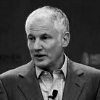The past four years has seen a bifurcation in society in the US which has impacted stability and trust. What are the pertinent issues for investors in navigating a fundamentally changed US, what does it mean for international trade, the future of globalisation and the growth of the economy? What is the fallout of the US election, the impact on markets and the long-term effects of geopolitical risk?

Stephen Kotkin
Professor in history and international affairs, Princeton University
Professor Kotkin received his PhD from the University of California, Berkeley in 1988, and has been a professor at Princeton since 1989. He is also a senior fellow at the Hoover Institution at Stanford University.
At Princeton Professor Kotkin teaches courses in geopolitics, modern authoritarianism, global history, and Soviet Eurasia, and has won all of the university’s teaching awards. He has served as the vice dean of Princeton’s Woodrow Wilson School of Public and International Affairs, and chaired the editorial committee of Princeton University Press. Outside Princeton, he writes essays and reviews for Foreign Affairs, the Wall Street Journal, and the Times Literary Supplement, among other publications, and was the regular book reviewer for the New York Times Sunday Business section for many years. He serves as an invited consultant to defence ministries and intelligence agencies in multiple countries. His latest book is Stalin: Waiting for Hitler, 1929-1941 (Penguin, 2017). His previous book was a finalist for the Pulitzer Prize.
White is responsible for the content across all Conexus Financial’s institutional media and events. She is responsible for directing the bi-annual Fiduciary Investors Symposium which challenges global investors on investment best practice and aims to place the responsibilities of investors in wider societal, and political contexts, as well as promote the long-term stability of markets and sustainable retirement incomes. She is the editor of conexust1f.flywheelstaging.com, the online news and analysis site for the world’s largest institutional investors. White has been an investment journalist for more than 20 years and has edited industry journals including Investment & Technology, Investor Weekly and MasterFunds Quarterly. She was previously editorial director of InvestorInfo and has worked as a freelance journalist for the Australian Financial Review, CFO, Asset and Asia Asset Management. She has a Bachelor of Economics from Sydney University and a Master of Arts in Journalism from the University of Technology, Sydney. She was previously a columnist for the Canadian publication, Corporate Knights, which is distributed by the Globe and Mail and The Washington Post. White is currently a fellow in the Finance Leaders Fellowship at the Aspen Institute. The two-year program consists of 22 fellows and seeks to develop the next generation of responsible, community-spirited leaders in the global finance industry.
Key takeaways
- This year has been a year full of surprises, and there are a lot more to come.
- Biden can do little about three key structural or contextual factors: 1) technology 2) demography 3) measurement challenges.
- We are in a new technological era already. The technological manipulation of biology we are seeing with the vaccine is the third technological revolution of the last century and will transform everything in our daily life, extending to agriculture and energy.
- Two global demographic trends are occurring simultaneously – the growth of the middle class across Asia and Africa and the growing ageing population over 60. This simultaneous growth is also happening crucially in China, which will soon be both the biggest grey and middle class market in the world.
- Measurement is currently broken across many metrics inc. GDP, MMT and racial categories. All these ways we measure who we are, what we do and how we should invest are flawed, but the suggested solutions have not been scaled.
- Biden could do something about another megatrend, geopolitics. The Middle East is not stable but there is a future vision for it that transcends the current limitations that would depend on Iran having an economy that is not primarily hydrocarbon driven but instead technology and jobs driven.
- BREXIT naturally continues to be problematic because the impossible dream of independence was a lie given the real desire to continue to take advantage of the benefits of interdependence. The EU has limited tools to combat the erosion of democratic norms, but is being much more proactive recently in using them. There is much written about Biden coming back together with Europe but there are issues here – the EU’s regulatory power is not easy to overcome and the Transatlantic Alliance brings both benefits and costs.
- There are many issues with China and the Biden Presidency has a big role to play. We will see whether he is up to the challenge. China is creating a growing ‘Anti-China Alliance’ like no other country could. For many people, China is now the solution to all global problems, but a China policy should not simply be a list of issues China could help with. There is little win-win in the US-China relationship. China has divided the internet and divided global connectivity. There must be both deterrents and diplomacy in the relationship with China.
- The timing of Biden’s Presidency is seemingly tailor-made for success, given for example the potential for a vaccine and economic recovery, however there are several headwinds that could undermine his success e.g. we have a new nativism on the right and on the left a critique of America’s power in the world. Will Biden really heal to normality as he promised? Biden’s Presidency will not be as difficult as Obama’s, if he seizes the opportunity.
- Investors need to be wary of the potential manipulation around tackling the challenge of Climate Change, in the US and globally.
- There will be a lot of identity politics i.e. appointments in the White House which are for show only. Biden suggests his Cabinet will look like America but there will be no-one in his cabinet on the national average of US 70k per year. Diversity is not about how many female CEOs there are, it is about how many single mothers can afford to feed their children. We need to move from identity politics towards genuine equality and opportunity for people on the street and children in the schools.
- We do not have populism. What we have is anti-system because people feel the system is failing. Our systems are less responsive than they need to be.
- The Trump phenomenon will not be as enduring as it may seem or be portrayed in the media. Biden will 100% be inaugurated in Jan 2021, the only question is whether Trump is man enough to show up at the inevitable inauguration in the new-year.
Poll results
Where do you think US economic policy should be focused?




